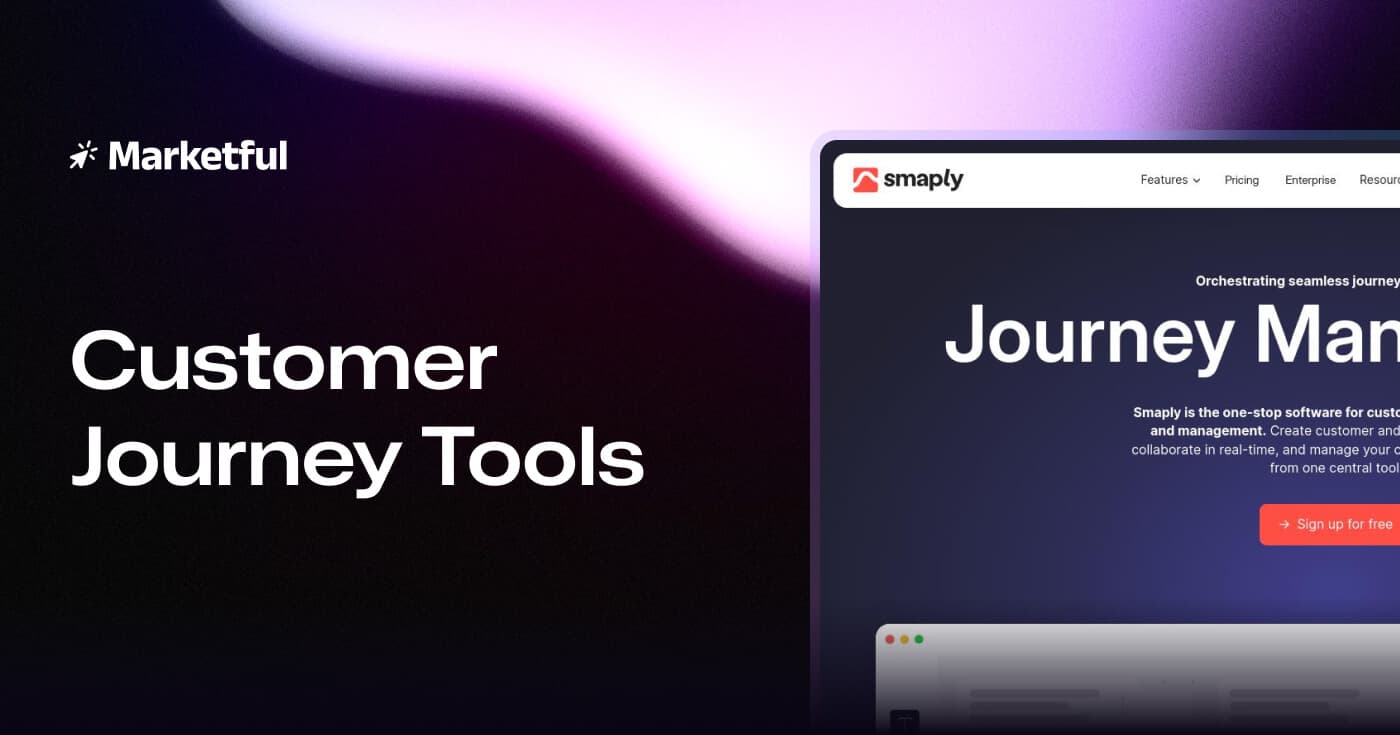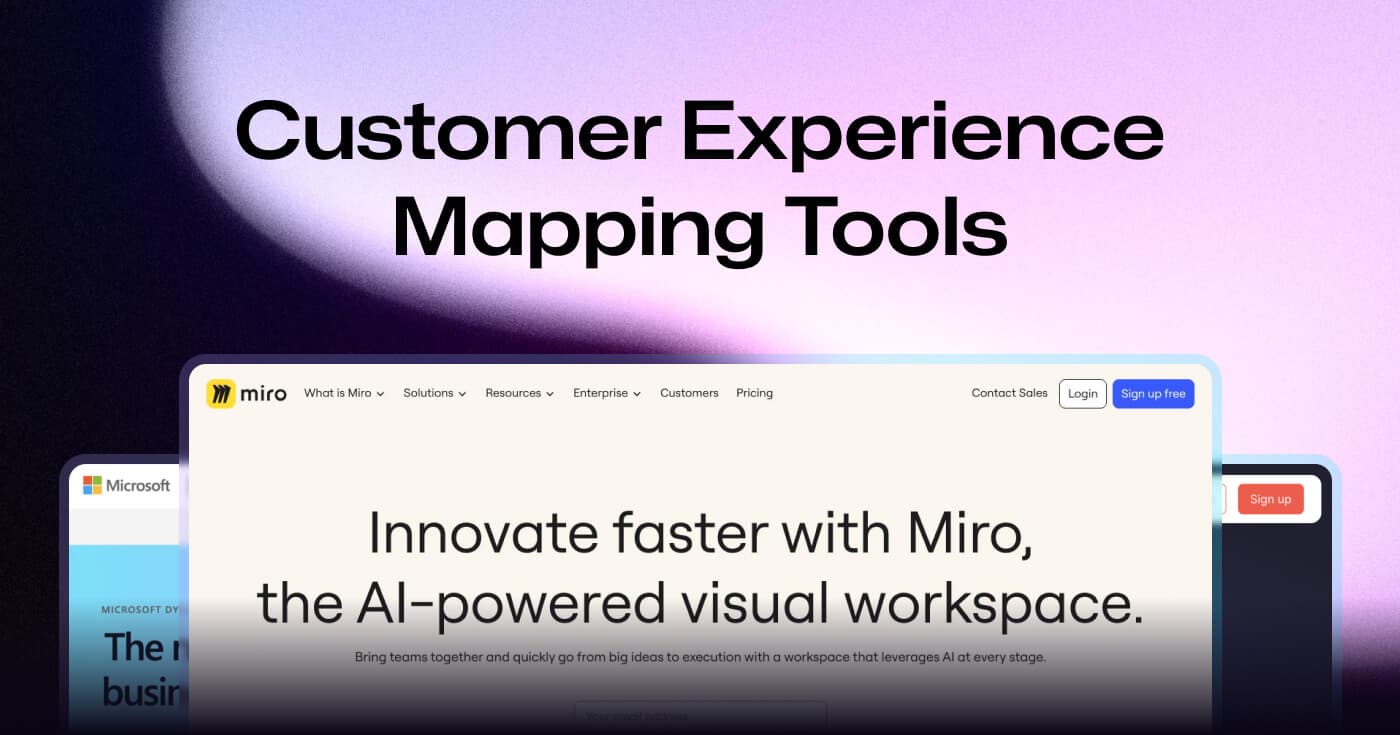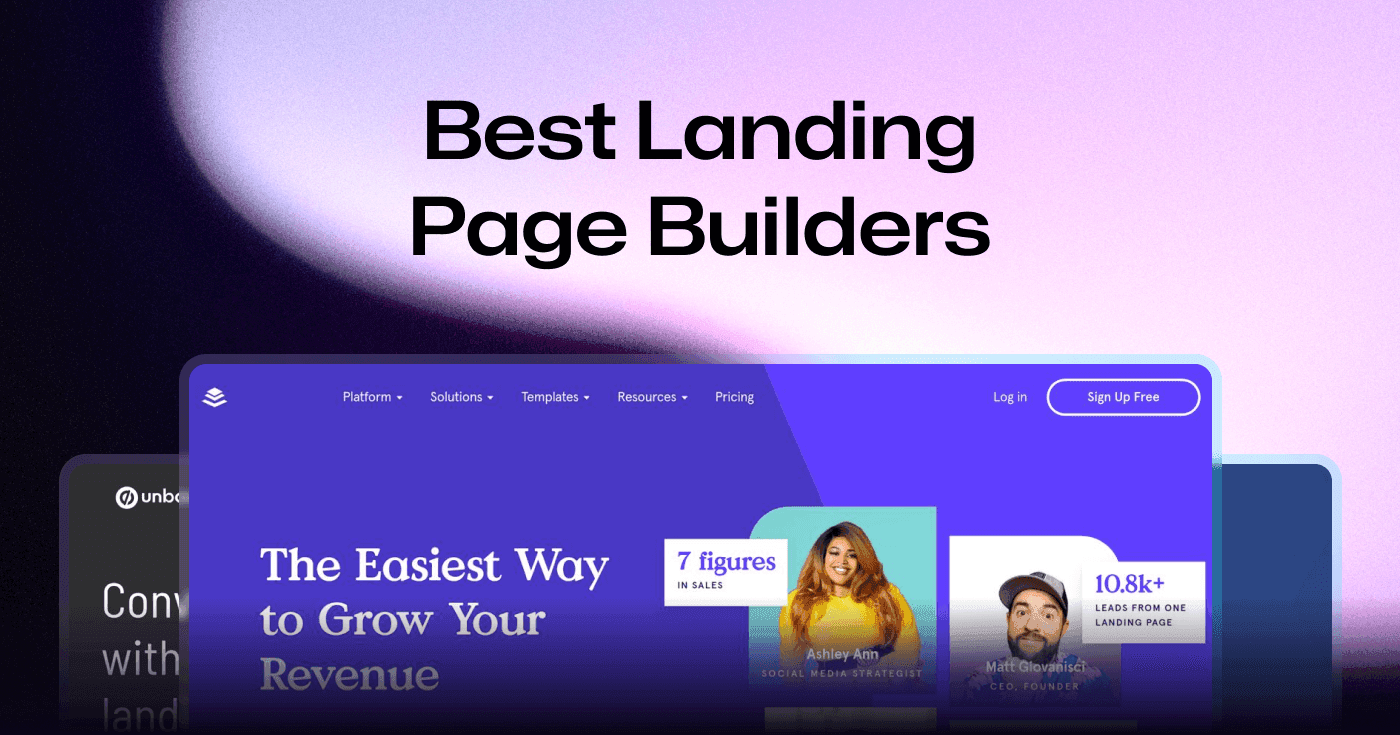B2B Website Visitor Tracking Software for 2025
Discover the top 10 B2B website visitor tracking tools in 2024. Enhance your lead generation and conversion strategies with these powerful software solutions.
Discover the top 10 B2B website visitor tracking tools in 2024. Enhance your lead generation and conversion strategies with these powerful software solutions.
B2B website visitor tracking tools help businesses convert anonymous traffic into actionable leads by analyzing visitor interactions.
With approximately 97% of website visitors not filling out forms, leveraging these tools can significantly enhance your lead generation strategies.
In this guide, we’ll explore the top 10 B2B website visitor tracking tools available on the market.
The evaluation process for B2B website visitor tracking focused on these key criteria:
We conducted thorough online research, analyzed expert reviews, and gathered user feedback to ensure our recommendations are reliable and relevant.
Software | Best For | Key Features | Pricing | Free Plan | Platforms Available |
|---|---|---|---|---|---|
Lead generation and CRM integration | Visitor tracking, CRM integration, analytics | No | Web, iOS, Android | ||
Identifying company visitors | Visitor identification, lead scoring, integration | Yes | Web | ||
AI-driven insights | Predictive marketing, visitor tracking | No | Web | ||
Comprehensive web analytics | Visitor analytics, behavior tracking | Yes | Web | ||
User behavior analytics | Heatmaps, session recordings, feedback tools | Yes | Web | ||
General web analytics | Site performance tracking, audience insights | Free | Yes | Web | |
Visualizing user behavior | Heatmaps, A/B testing, recording | Yes | Web | ||
Advanced analytics | User engagement tracking, cohort analysis | Yes | Web | ||
Privacy-focused analytics | Data ownership, GDPR compliance | No | Web | ||
Session replay | Session replay, user engagement analytics | No | Web |
Best for lead generation and CRM integration
Nutshell offers a comprehensive suite for tracking website visitors, integrating seamlessly with popular CRM systems.
Its robust analytics capabilities allow businesses to convert anonymous visitors into actionable leads effectively.
Nutshell offers competitive pricing starting at $19/mo, with features tailored for small to mid-sized businesses. Explore their pricing page for more details.
Best for identifying company visitors
Leadfeeder specializes in identifying the companies visiting your website, enabling sales teams to reach out proactively.
It integrates effortlessly with Google Analytics.
Leadfeeder starts at $55/mo, providing excellent features for businesses looking to enhance their lead generation efforts. Check their pricing page for specifics.
Best for AI-driven insights
Signals leverages AI to provide predictive insights about your website visitors.
It helps businesses anticipate visitor needs and personalize marketing strategies.
Signals starts at $49/mo, making it a great option for businesses focused on data-driven marketing strategies. Visit their pricing page for more details.
Best for comprehensive web analytics
Webstacks provides a full suite of web analytics tools, allowing businesses to track and analyze visitor behavior in-depth.
Webstacks pricing starts at $99/mo, reflecting its robust analytics capabilities. Check the pricing page for further information.
Best for user behavior analytics
Hotjar is a powerful tool for understanding user behavior through heatmaps and session recordings, providing valuable insights into how visitors interact with your website.
Hotjar starts at $39/mo, making it accessible for companies looking to enhance user experience. Visit their pricing page for more details.
Best for general web analytics
Google Analytics is the most widely used analytics tool, providing comprehensive insights into website traffic and user behavior.
Google Analytics is free for most users, making it a staple for businesses of all sizes.
Best for visualizing user behavior
Crazy Egg offers unique tools like heatmaps and A/B testing to help businesses visualize user behavior and optimize their websites accordingly.
Crazy Egg pricing starts at $24/mo, providing good value for businesses focused on optimizing their website. Check their pricing page for more details.
Best for advanced analytics
Mixpanel is geared towards product analytics, providing insights into user engagement and retention.
Mixpanel starts at $25/mo, a competitive price for its advanced analytics capabilities. Visit their pricing page for more details.
Best for privacy-focused analytics
Piwik PRO is an analytics suite that prioritizes data privacy, making it suitable for businesses needing compliance with GDPR.
Piwik PRO offers custom pricing tailored to specific business needs. Visit their pricing page for more information.
Best for session replay
FullStory provides session replay capabilities, allowing businesses to watch how users navigate their sites, offering insights into user experience issues.
FullStory starts at $199/mo, reflecting its robust features for user experience analysis. Check their pricing page for more details.
Selecting the ideal B2B website visitor tracking tool depends on your specific requirements and use case. Consider these crucial factors:
Choosing the right B2B website visitor tracking tool is critical for understanding and optimizing your marketing efforts. Each tool has its strengths and caters to different user needs, so it’s essential to evaluate your specific requirements before making a decision.
Explore our top picks to find the best B2B website visitor tracking tool that aligns with your business objectives.
B2B website visitor tracking refers to tools designed to analyze website visitor behavior, helping businesses identify potential leads and optimize marketing strategies.
Tools like Leadfeeder and Nutshell specialize in identifying anonymous visitors by analyzing their behavior and company information.
Visitor tracking tools help businesses convert anonymous traffic into leads, improve marketing strategies, and understand visitor behavior, enhancing overall conversion rates.
Some of the top tools include Nutshell, Leadfeeder, Signals, and Webstacks for various tracking needs.
By analyzing visitor behavior, businesses can identify high-quality leads, understand their interests, and tailor their outreach strategies, ultimately improving lead conversion rates.

Compare the top 9 customer journey tools for 2025 that enhance user experiences and streamline customer engagement across channels.

Discover the best customer experience mapping tools for 2025 to enhance your business’s customer journey strategies.

Explore the best landing page builders to enhance your marketing strategy and boost conversions in 2025.